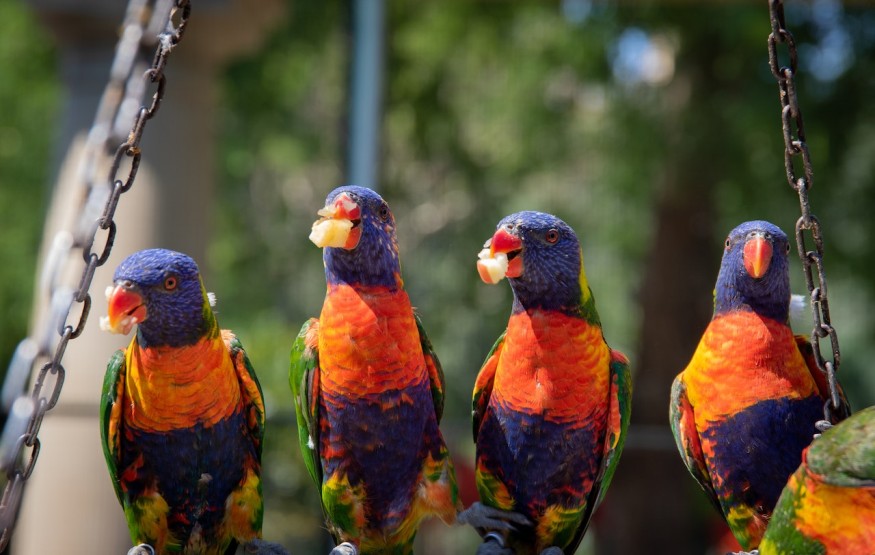A new study shows that domesticated parrots that have video calls with each other tend to be less lonely and have a better quality of life, per Business Insider.

Parrot Socialization
According to the study, pet parrots were trained to make video calls to their peers. Throughout the study, which spanned three months, animal-computer interaction specialists worked together to examine how heightened interaction affects pets.
Dr. Ilyena Hirskyj-Dougla, a co-author of the study from the University of Glasgow, explains that video calling has eased the loneliness and isolation humans have felt over the COVID-19 pandemic. Dr. Hirskyj-Dougla adds that considering there are over 20 million parrots housed across America, they wanted to see if video calling could help these birds as well. They wondered if these birds would contact other peers if they had the chance and if the experience would benefit them.
The Straits Times notes that the study suggests that birds reaped the benefits of making new friends of the same feather in the digital world.
Yahoo! News reports that scientists looked into video observations of 18 parrots over a thousand hours. They noted that the birds engaged in social behaviors more regularly. These activities included preening and singing.
As part of the procedures, the parrots were allowed to access a touchscreen tablet for making video calls. With the assistance of their owners, they were taught how to make a call by touching another parrot's image on the screen.
They could also select a peer to contact. The Straits Times adds that the ones that often contacted other parrots were the most popular options.
For Parrots, Seeing a Friend Online Was Seeing a Friend Nonetheless
While several parrot species in the wild live in huge flocks, domesticated parrots tend to be alone or live in small groups. Due to isolation and boredom, birds may foster psychological issues that manifest as rocking, back-and-forth pacing, or even self-harming behaviors, including plucking feathers.
The scientists suggest that letting the bird's video call each other may lead to some social benefits that accompany living with a large flock.
Dr. Hirskyj-Dougla notes how surprising the different behavior ranges were. Some parrots sang while others played around and went upside down. Others wanted to show toys to their peers.
Throughout the three months, there were 147 deliberate parrot calls. As these calls took place, owners observed the birds' behavior.
Dr. Jennifer Cunha, a co-author of the study, explains that the parrots seemingly understood that they were interacting with fellow peers since their behavior was similar to those during real-life parrot interaction.
Some birds learned to forage for the first time. In fact, one owner reported that a parrot made its first flight after the video call.
Dr. Hirskyj-Dougla also adds that the internet for animals is already here. However, while hundreds of pet products help owners reach their animals digitally and remotely, the design primarily caters to human wants, not pet needs.
All study participants valued the experience and wanted to retain the system with their pet parrots.
Check out more news and information on Animals in Science Times.











